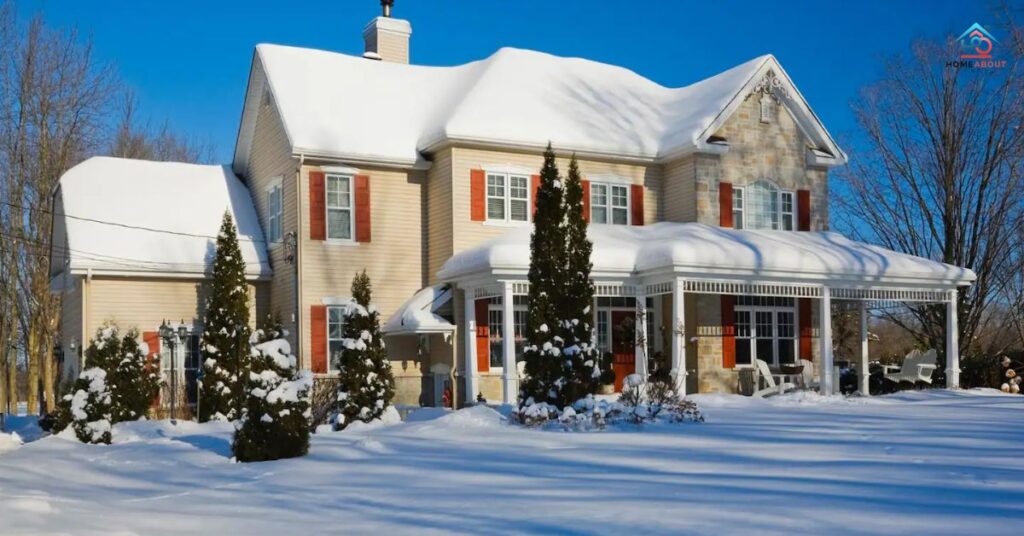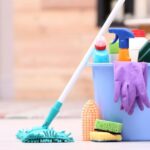Preparing your house for winter is crucial to safeguarding for Winterize house. Creating the illusion of occupancy by halting mail delivery and arranging for snow clearance is the first step. Utilizing timers for lights adds to the appearance of activity, deterring potential intruders.
Ensuring your home is secure against theft involves checking alarm systems and reinforcing locks. Valuables should be stored in a secure offsite location and refraining from sharing vacation plans on social media is advisable.
Preventing water damage is imperative. Turning off the water supply and maintaining warmth to prevent pipe freezing are essential. Regular maintenance of heating systems is also recommended. These measures collectively contribute to maintaining the safety and integrity of your house throughout the winter season.
What Is Winterization?
Winterization means getting your home ready for winter when you’re not there. It’s important if you’re leaving for a long time. This helps protect your home from problems like burst pipes or theft.
To winterize, make it look like someone’s still there. Ask a friend to collect mail and check on things. Also, set up lights on timers to make it seem occupied.
You should also protect against water damage and theft. Turn off the water and drain pipes to prevent freezing. Make sure your alarms are working and secure doors and windows.
Prevent Your Home from Appearing Unoccupied
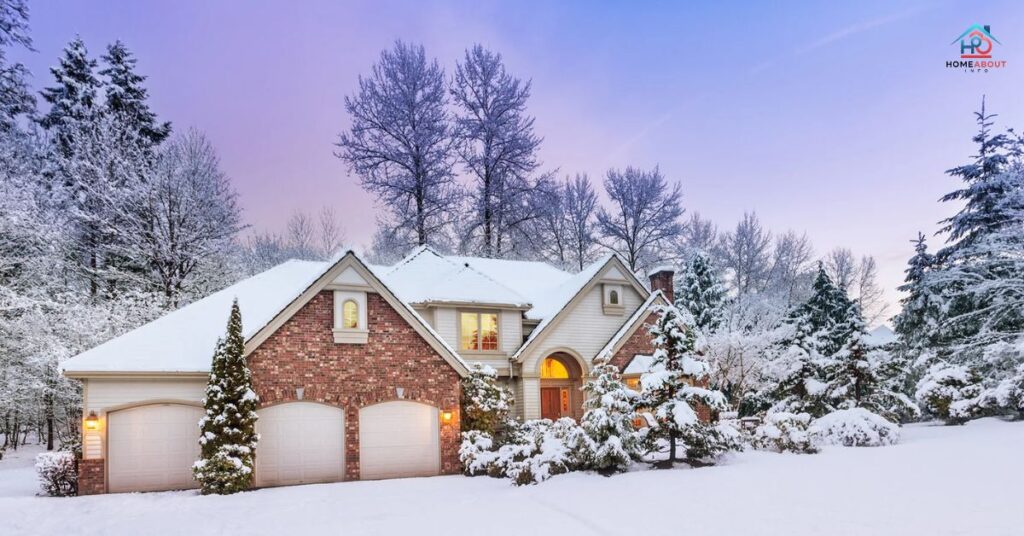
Here are five bullet points to summarize how to prevent your home from appearing unoccupied:
- Forward mail and halt newspaper delivery.
- Arrange for snow removal after storms.
- Use timers for lights and motion-sensitive exterior lighting.
- Have a friend collect items from the door.
- Avoid posting travel plans on social media.
Read this blog : 1031 EXCHANGE ON A PRIMARY RESIDENCE
Help Avoid Water Damage by Turning Off Your Water Supply
To avoid water damage, turn off your water supply. This prevents burst pipes or leaks . Consult a professional if you’re unsure about your heating system. Draining your pipes before you leave is a good idea.
If you decide not to drain the pipes, keep your furnace running. Set the temperature to at least 55°F. This helps prevent freezing inside the walls. Shut off the water to appliances like washing machines.
Installing sensors on your water supply pipe. These can alert you to any issues. Insulate exposed pipes in unheated areas. This further protects against freezing and potential damage.
Keep Your Home and Plumbing Warm
To keep your home warm, keep the furnace running. Set the temperature to 55°F or higher. This prevents pipes from freezing. Open room and cabinet doors to circulate heat.
Turn off the heat source for hot water heaters. Shut off outdoor faucets to avoid freezing. Install water flow sensors and low-temperature sensors. Wrap exposed pipes with heat tape.
Maintain your heating system. Have it serviced by a professional before winter. Keep fuel tanks filled and monitor levels. Check electrical systems for any issues. These steps ensure your home stays warm and safe during winter.
Take Steps to Protect Your Home from Thieves
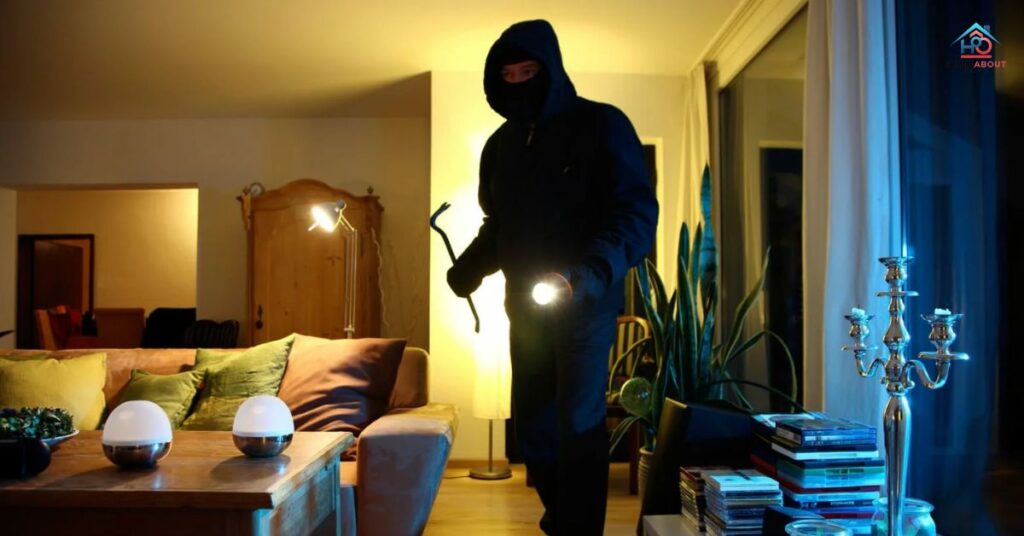
Here are some points related to protecting your home from thieves:
- Activate and maintain alarm systems.
- Secure doors and windows with deadbolt locks and slide locks.
- Store valuables in secure offsite locations.
- Avoid sharing vacation plans on social media.
- Install motion-sensitive lights and timers for interior and exterior lighting.
Perform Routine Winter Maintenance Before You Leave
Before you leave for the winter, check your heating system. Make sure it’s working well. Get it inspected by a professional. Also, fill your fuel tanks. Keep them topped up during winter.
Keep your home warm. Set the heat to at least 55°F. This prevents pipes from freezing. Maintain your wood-burning stove properly. Don’t let your home get too cold.
Make sure your insulation is good. Add more if needed. Seal any drafts around doors and windows. Taking these steps ensures your home stays cozy and safe during the winter months.
Heating System Maintenance
Before winter arrives check your heating system. Get a professional to inspect it and fix any issues. Keep your fuel tanks full and ensure electricity flows smoothly. Clean or replace furnace filters. Have your chimney checked for safety. During winter, monitor fuel levels and set the heat to at least 55°F. Keep up with maintenance according to the manufacturer’s instructions.
Insulation Maintenance
Insulation maintenance keeps your home warm. Check insulation before winter starts. Add more insulation if needed. This stops heat from escaping. Heat loss can cause ice dams. Ice dams lead to water damage. Upgrade weather stripping and caulk. This stops drafts and heat loss. It’s important for winter comfort.
Winter Safety Measures
As winter approaches it is important to stay safe. Trim trees and remove dead branches to prevent damage from ice and snow. Keep gutters clear so water can drain properly. Repair steps and handrails to avoid slips on ice. Check smoke detectors and replace batteries to ensure they work. Unplug unnecessary appliances before leaving. Taking these simple steps can help keep you safe during the winter months.
Key Supplies and Equipment
Before winter arrives, make sure you have what you need. Get snow shovels and roof rakes. Also, stock up on ice-melting compound. Check your snow blower and generator. Make sure they work well. Keep fuel for them in safe containers. Don’t store fuel in your basement.
Make Your Home Unattractive to Pests
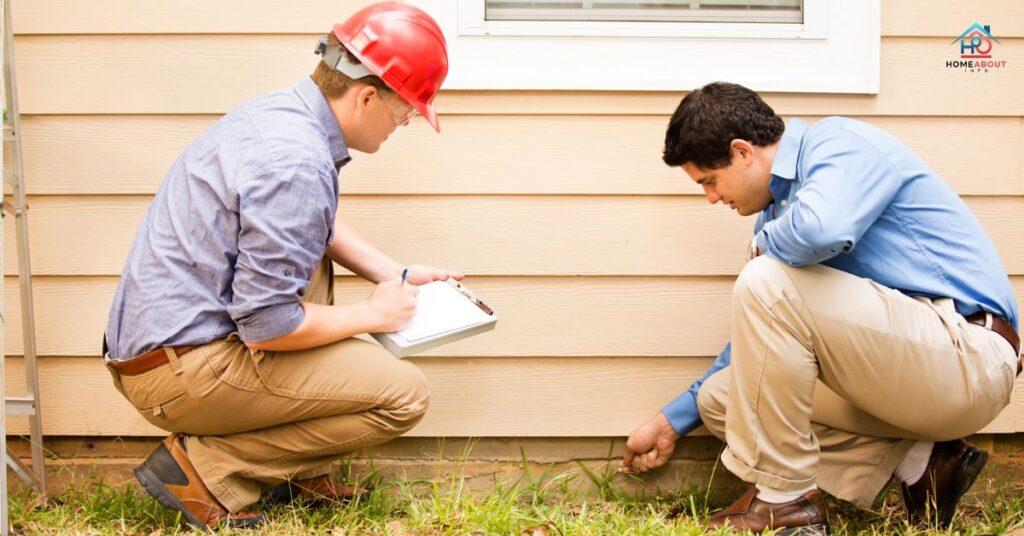
Keeping your home clean helps keep pests away. Wipe surfaces and clean up spills regularly. Don’t forget to clean appliances like fridges and ovens. Remove any food crumbs or spills.
Inspect your home for openings where pests can enter. Check windows, doors, and vents. Seal any cracks or gaps with caulk or weather-stripping. Keep your fireplace flue closed when not in use.
Install screens on windows and vents to keep pests out. Keep trash cans tightly sealed. Trim bushes and trees away from your home. These simple steps can help make your home less inviting to pests.
Be Ready for Emergencies
Here are some points to ready for emergencies.
- Clean your home thoroughly to deter pests from moving in.
- Defrost and unplug refrigerators and freezers leaving doors open to prevent mildew.
- Inspect for openings pests could use to enter such as chimney flues or damaged weather-stripping.
- Ensure proper sealing of exterior doors and windows to prevent water and insect entry.
- Install chimney guard screen-caps and have chimneys inspected to prevent nesting.
Make Sure You Have the Insurance Coverage You Need
It’s important to have the right insurance for your home. Talk to your insurance agent. They can help you understand your coverage. Make sure your policy is up to date. This ensures you are protected . If anything happens you will have peace of mind knowing you are covered.
Do not forget to pay your premiums on time. This keeps your coverage active. Your insurance should include protection against various risks. This includes theft, water damage and emergencies. Confirm all these details with your agent.
Before you leave double-check your insurance documents. Ensure they are easily accessible. If you have any questions ask your agent. They are there to help you. With the right coverage you can enjoy your time.
Frequently Asked Questions
How can I prevent frozen pipes?
Keep your home heated above 55°F and consider draining your pipes.
What should I do about mail and newspaper delivery?
Forward your mail and pause newspaper delivery to prevent your home from looking unoccupied.
How do I secure my home against burglars?
Activate your alarm system, use deadbolt locks, and avoid posting travel plans on social media.
Should I turn off the water supply to my home?
Consider turning off the water supply to prevent potential leaks or bursts.
What insurance coverage do I need for my vacant home?
Ensure your homeowner’s insurance is up to date and covers risks like theft and water damage.
Conclusion
Winterizing a house means preparing it for the winter season when you won’t be there. It involves taking steps to protect your home from potential damage caused by Cold Weather such as freezing pipes theft and pests. By winterizing your house you ensure that it remains safe and secure while you are away giving you peace of mind during your absence.
From turning off water supplies and securing doors and windows to maintaining heating systems and removing potential hazards. Winterizing a house involves a series of preventive measures. It’s about safeguarding your property against the risks associated with winter weather conditions allowing you to return to a home that’s in good condition when you come back. Winterizing your house is essential for snowbirds and anyone leaving their home unattended during the colder months.

Ava, boasting five years in home blogging, shares expertise in domestic living. With a sharp eye and passion for details, she navigates home decor and lifestyle intricacies effortlessly.

